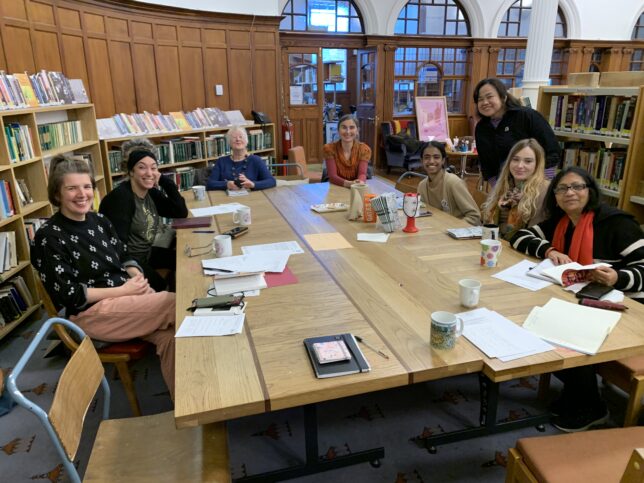The Story Café Sexology Special: May 14 @ 12:30 pm – 2:30 pm
In the novel The Proof of the Honey by Syrian author Salwa al-Neimi poetic insight blends with sexual frankness. I spoke to GWL’s librarian Wendy Kirk about the Sotry Café’s special Sexology event, on choosing the above book to read and discuss, and why it’s important to celebrate this milestone in Arabic literature.
Why was the book chosen and a bit about the author and controversy?
We were particularly interested in the fact that this book has been banned in some Arab countries due to its erotic content, and has been a bestseller in others – this added an extra element of intrigue and curiosity. There has been further controversy surrounding the book. In 2012, Apple removed the book from its iTunes stores, citing the ‘inappropriateness of its cover’, which features part of a naked woman’s back and bottom.
Salwa Al Neimi was born in Damascus, Syria in the 1950s. Since the mid-seventies, she has lived in Paris, where she studied Islamic Philosophy and Theatre at the Sorbonne. She has published three volumes of poetry and a collection of short stories.
Why is it important to hear this voice as part of the Sexology season?
The narrator of the novel claims that ‘Arabic is the language of sex’, and there is long, rich tradition of Arabic erotica, so it’s great to be able to shine a spotlight on this contribution to the exploration of women’s sexuality.
Where can readers get more of her work?
We hope to have more of her work on our shelves soon, so watch this space!
What is literature’s role in contributing to the field of sexology?
People can often discover things about themselves through reading about the experiences of fictional characters – it can be an illuminating or empowering experience to identify with fictional protagonists. Literature is wonderful because it can offer a ‘safe’ way to explore and discuss complex issues, particularly when working with a group.
Why is it important for women to talk about sex, sexuality and sexual identity?
Sex is an intrinsic part of most women’s lives, and it can be a wonderful, life-affirming and joyous part of life, or it can be something that women struggle with, for a whole range of reasons.
What is the cost today of women naming and claiming their desires?
I think there is huge cost of women NOT naming and claiming their desires, because if they’re not, then who is?
In a country where feminism and discussions of sexuality are often dominated by white western folk, it is fantastic that GWL are going against this usual pattern. If you’re well read on Salwa al-Neimi come along and educate us, if you’re a new-comer join to read and discuss!


